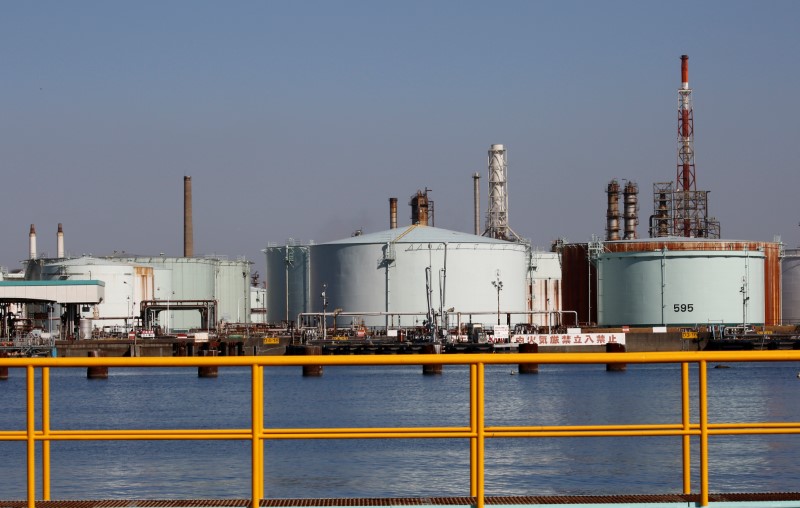Investing.com - Oil prices climbed on Thursday amid renewed concerns over risks to global supply in the wake of last weekend's attacks on Saudi Arabia’s oil infrastructure.
U.S. crude futures rose 1.1% or 70 cents to trade at $58.73 per barrel by 9:35 AM ET (1:35 GMT) after rising as high as $59.48 earlier.
Global benchmark Brent crude futures were up 1% at $64.67 a barrel, off a session high of $65.56.
The attacks knocked out over half of active Saudi crude production and severely limited the country's spare capacity, a cushion for oil markets in any unplanned outage.
"Global available spare capacity is extremely low at present following the weekend attacks, leaving little room for additional outages, which tends to be price supportive," UBS oil analyst Giovanni Staunovo said.
Earlier this week Saudi said production will be back to normal levels in two to three weeks, which means restoring output to about 10 million barrels per day.
But traders and analysts are skeptical, while the lack of transparency about Saudi inventories adds to uncertainty about whether Riyadh can keep markets supplied without disruption.
Gary Ross, founder of Black Gold Investors and a veteran oil industry expert, said it was difficult not to believe that Riyadh was being "overly optimistic" in its timeline, given Saudi moves to defer cargoes and cut crude runs at its oil facilities. "Tightness is coming," he said.
Saudi Arabia, the world's leading oil exporter, has said the crippling attack on its oil sites was "unquestionably sponsored" by regional rival Iran. Tehran has denied involvement in the strikes.
Concerns over geopolitical tensions in the Middle East remained to the fore following comments by Iran’s Foreign Minister Mohammad Javad Zarif on Twitter earlier Thursday.
According to Zarif, accusations that attacks on Saudi oil sites were "an act of war" may be aimed at deceiving U.S. President Donald Trump into a war against Iran.
Trump has said there were many options short of war with Iran and has ordered the U.S. Treasury to "substantially increase sanctions" on Tehran.
Meanwhile, Wednesday’s weekly report from the Energy Information Administration on U.S. oil inventories provided a mixed snapshot.
Crude stockpiles rose by 1.1 million barrels last week against analysts' expectations for a drop of 2.5 million barrels.
However, stocks at Cushing, Oklahoma, the delivery point for benchmark futures, fell to their lowest since October 2018.
--Reuters contributed to this report
